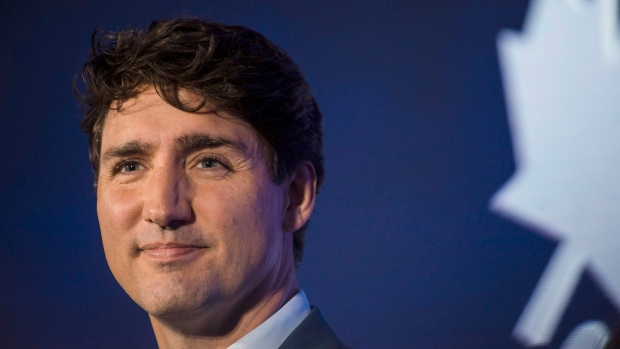Oct 7, 2017
Trudeau aims to calm 'heated debate' amid Energy East fallout

Prime Minister Justin Trudeau is defending his government's policies and attempting to defuse regional tension in the wake of TransCanada's decision to scrap its Energy East pipeline proposal.
"It's no surprise there's been heated debate," Trudeau wrote in a statement released via his Facebook account Saturday afternoon.
"But debate is one thing. Stoking national divisions, using a private corporation’s business move as a pretext, is another. That doesn’t help anyone. What’s more, in this case, the stoking is based on an evidently false premise."
The government has faced an onslaught of criticism from the official opposition and Saskatchewan Premier Brad Wall since TransCanada announced the end of Energy East on Thursday.
- Sask. Premier Brad Wall rips Ottawa over Energy East cancellation
- Crude-by-rail reliance expected to increase after Energy East cancellation
- Natural Resources Minister Carr fires back at Wall over Energy East
READ MORE: ENERGY EAST
Conservative Party Leader Andrew Scheer accused the Liberals of having "disastrous energy policies," while Wall warned on national unity.
"The expectation of course from the federal government, and some powerful central Canadian interests, is that the west will just grin and bear this latest blow to our economy and our people," Wall wrote in a statement Thursday.
"Something needs to change. For the west to continue on like this in our federal system is the equivalent of having Stockholm syndrome."
Trudeau, however, said Saturday any attempt to stoke division within the country "is a political dead end."
While TransCanada cited "changed circumstances" for its decision to pull the plug on its controversial pipeline project, the prime minister rejected any suggestion that federal regulations are the culprit. In doing so, he pointed to pipelines that have been approved on his government's watch, like Kinder Morgan's Trans Mountain expansion and Enbridge's Line 3.
Indeed, he suggested that extra pipeline capacity, along with the crash in crude oil prices and rising global supply, were "market forces" that factored into TransCanada's decision.
"Folks are entitled to their opinions," Trudeau wrote.
"But Canadians deserve better than a discussion in which leaders leap to capitalize on perceived regional slights, regardless of context or facts. ... We don’t get far – we never have gotten far – by pitting one region against another, or one group against another."


